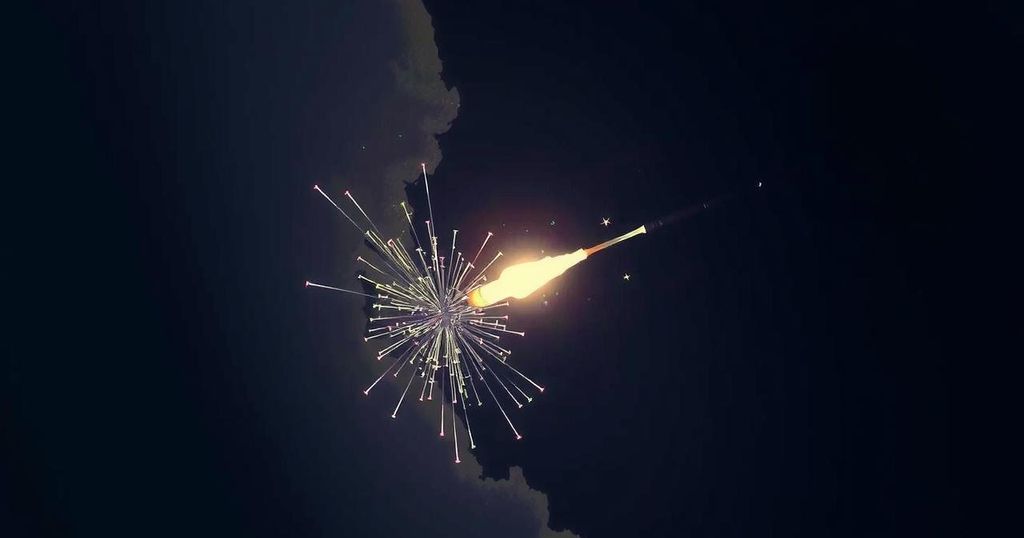Global news
ALI KHAMENEI, ALI LARIJANI, ASIA, AYATOLLAH ALI KHAMENEI, BEIRUT, CONFLICT, HAMAS, HAN, HANIYEH, HASSAN NASRALLAH, HEZBOLLAH, IRAN, IS, ISLAMIC REPUBLIC, ISMAEL HANIYEH, ISNA, ISRAEL, KHAMENEI, LARIJANI, LEBANON, MAS, MASOUD PEZESHKIAN, MIDDLE EAST, MILITARY OPERATIONS, MOSSAD
Marcus Li
0 Comments
Israel’s Intelligence Operations Expose Iran’s Internal Vulnerabilities
Israel’s recent intelligence successes against Iran reveal deep infiltration in Iran’s security apparatus, raising alarms within the Iranian leadership. High-profile assassinations and operations suggest leaks at critical levels within the regime, exacerbating tensions between the two nations. Analysts assert that dissatisfaction within Iran may bolster Israeli intelligence efforts, creating a complex landscape for both powers.
Recent intelligence successes by Israel against Iran and its allies have revealed significant infiltration within the Iranian administration, generating considerable apprehension within the Iranian leadership. Analysts speculate that these operations, which include targeted assassinations and military strikes, necessitate high-level leaks within Iran’s security and governmental frameworks. This infiltration is becoming increasingly alarming as tensions between the two nations have escalated, leading to direct confrontations on each other’s territories. A senior advisor to Supreme Leader Ayatollah Ali Khamenei has publicly recognized the severity of the infiltration issue, indicating a substantial rise in intelligence breaches in recent years. Former parliament speaker Ali Larijani noted instances of negligence within the regime’s apparatus. Critical strikes attributed to Israel, such as the recent killing of prominent members affiliated with Iranian-backed militant groups, have underscored the effectiveness of Israeli intelligence operations. For instance, the assassination of Hezbollah leader Hassan Nasrallah in Beirut was executed with remarkable precision, suggesting comprehensive intelligence regarding his whereabouts. Similarly, the targeted elimination of Hamas leader Ismael Haniyeh in Tehran utilized explosive devices strategically placed by Israeli agents well in advance. In a particularly alarming incident, a simultaneous explosion involving Hezbollah’s communication devices resulted in numerous casualties, further highlighting Israel’s extensive infiltration activities. Although Israel has historically denied involvement in such operations, connection to these incidents has been widely inferred. Notably, reports indicate that Israeli intelligence, particularly the Mossad, has been actively engaged in sabotage operations within Iran for years, including the assassination of nuclear scientist Mohsen Fakhrizadeh in 2020. Experts emphasize that growing dissatisfaction with the Iranian regime has opened avenues for Israeli intelligence acquisition, with many individuals within Iran reportedly willing to assist in exchange for financial incentives or ideological alignment. Former officials have suggested that the Iranian government’s inability to protect itself from these breaches suggests a crisis of intelligence efficacy. Overall, the prevailing sentiment among analysts is that Israel’s infiltration of Iran poses a grave challenge to the Islamic Republic’s integrity and reflects a broader trend of instability within Iran concerning its leadership and loyalty. As both nations continue to confront one another, Israel’s decisive operational successes signal a curious escalation in their clandestine war, indicating that the ramifications of these intelligence failures could have far-reaching consequences for Iran.
The article discusses the growing tension and intelligence warfare between Israel and Iran, focusing on Israel’s capabilities in infiltrating Iranian government and security structures. Analysts highlight the implications of recent targeted strikes and operations attributed to Israel, indicating a sophisticated espionage network operating within Iran. The background notes a rising concern within Iranian leadership regarding the effectiveness of their intelligence services in countering Israeli actions, amidst internal dissatisfaction with the regime.
In conclusion, the escalating intelligence conflict between Israel and Iran reveals significant vulnerabilities within the Iranian regime. Israel’s successful infiltration into Iran’s administrative and military apparatus not only highlights its advanced espionage techniques but also suggests a troubling level of internal dissent against the Iranian leadership. As both nations navigate this dangerous landscape, Israel’s continued operational successes may pose further challenges to Iran’s sovereignty and security.
Original Source: www.barrons.com




Post Comment